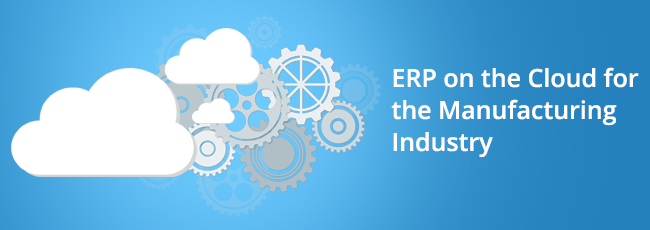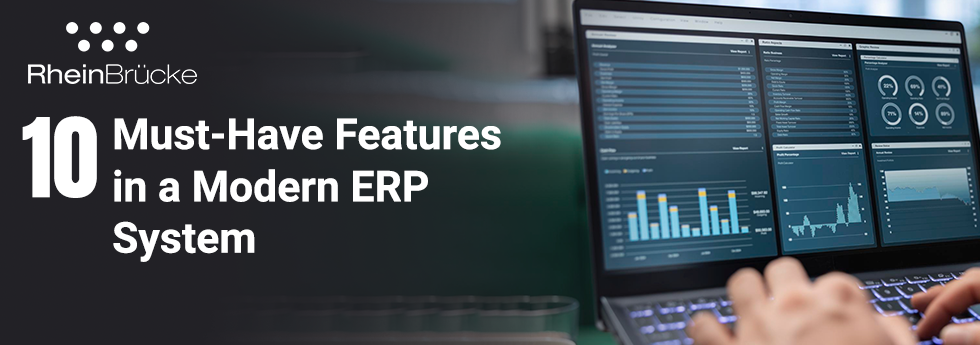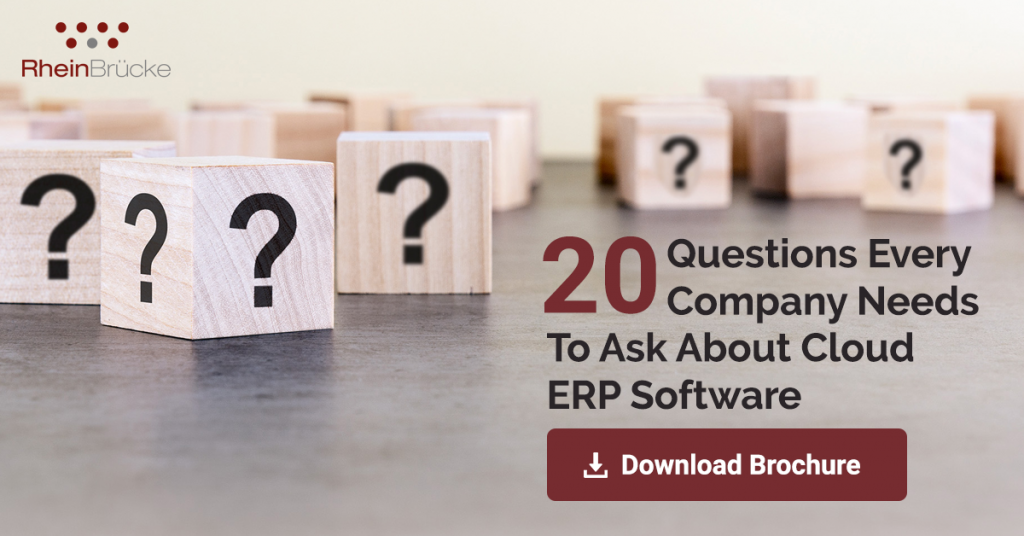
In an earlier post, we explored ERP on the cloud and its many benefits. Every industry has some specific processes that need to be kept in mind while implementing ERP to ensure that the business benefits and ROI associated with the ERP initiative are maximized.
The manufacturing industry today is undergoing a significant transformation in terms of the means of production vis-à-vis the digitization of manufacturing. This move popularly known as Industry 4.0 – represents the fourth wave of the manufacturing industrial revolution. The first started with the mechanization through water and steam power, the second was heralded with mass production and assembly lines; the third was marked by the adoption of computers and automatons and this, the fourth is all about the enhancement of smart systems with edge devices, data and machine learning.
ERP systems have been historically, revolutionary for the manufacturing industry. ERP in its more primitive stages changed the game of inventory management in the 1960s, Materials Requirement Planning (MRP) in the 1970s, and Manufacturing Requirements Planning (MRP II) in the 1980s. During the 1990s, the manufacturing industry had invested almost $300 billion on ERP software. However, due to its high capital investment, ERPs were a privilege and only Fortune 500 companies could afford them. Small to Medium businesses had little to no access to this technology due to the high initial cost and the extremely stretched ROI timelines. Today, things are changing. Due to the absence of the high capital expenditure for their set up, cloud-based ERPs are challenging the very norms of traditional ERP systems.
Some of the ERP systems on the cloud such as Epicor ERP have functionalities that specifically benefit the manufacturing industry. The fist benefit is in terms of supply chain optimization. Cloud-Based ERP can effectively manage the inflow and the outflow of large quantities of materials and is thus is a valuable tool to help integrate the supply chain. Businesses in the manufacturing industry are primarily concerned with the management of their global supply chains and Cloud ERP systems seek to do exactly this. The biggest benefit of the cloud ERP system is that it seamlessly manages minute details of transactions on the supply chain so that staff in the business can focus on work that has a higher value.
Accounting is also another important feature of cloud-based ERP. This easily integrates with supply chain, giving visibility of inventory and goods received, so bottom line numbers are conveniently retrievable. Since ERP systems have modular designs, different departments in the workflow can manage their own respective modules; further, senior management can always access this information as they have access to full visibility across plants. Further, the cloud architecture allows one to handle the day-to-day with ease. Ordering of raw materials, scheduling workflow and monitoring price fluctuations can all be handled with a single tap. You can make decisions and see their application in real time, allowing you to make amends as you go. The availability of in-depth analysis on manufacturing ERP allows a full accounting visibility of the supply chain and you can hold full management control.
ERP on the cloud also has a multitude of strategic advantages. Business leaders can identify bottlenecks in the supply chain and production processes and can quickly assess and solve the issues. With a 360 degree view, cloud ERP allows on to configure the whole plant for maximum productivity. Due to the great operational insight that is granted through ERP, it is possible to maximize productivity of separate plants as well as at an enterprise level.
Cloud ERP such as Epicor for manufacturing industries are making advanced, efficient technology accessible to a broader spectrum of enterprises. The manufacturing industry is primarily focused on maximizing productivity and workflow. There is little margin for error and a smaller allowance to waste away money and time. Epicor on the Cloud Manufacturing ERP is the one stop solution as it helps the management to effectively analyze and solve problems not only across the supply chain but across plants as well. Good businesses work like a machine, cloud ERP systems ensure that it is well oiled.
One of the critical advantages of solutions such as Epicor ERP on the cloud is that seamless integration with shop-floor sensors and devices enable the IOT solution for your plant to directly post data in the ERP, thus giving real-time visibility and control over production as well as uptime data.
Opting for a cloud ERP should not result in dilution of manufacturing specific requirements. Decision makers within the enterprise should validate the fitment of the solution suggested by IT vendors to ensure that a non-specific or vanilla ERP implementation is deployed resulting in an inadequate solution that the business users are reluctant to adopt.
Here at RheinBrücke, we are dedicated to providing state of the art IT solutions for the manufacturing industry.
Click here to know more about Epicor on the Cloud for your manufacturing industry.




